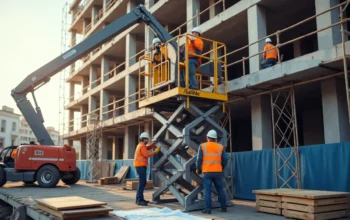The Emotional Side of Buying a New Home
The decision to purchase a new home brings emotions of excitement and anticipation. You imagine fresh beginnings and new routines that could set the tone for a different life chapter. Yet, there’s also a sense of longing for everything familiar, tinged with occasional doubts about the unknown. This delicate balance between eagerness and hesitation is normal, and acknowledging that can help you move forward with greater confidence. Mixed feelings don’t mean you are unprepared; in fact, they indicate you care deeply about this life-changing transition.
Buying a house brings more than practical tasks like securing financing or packing boxes. It carries intangible weight, from leaving cherished memories behind to creating space for new ones. Each new corner feels like a blank slate ready for personal touches, but it can also feel like a leap into the unexpected. While careful planning is necessary, it’s just as helpful to focus on your well-being, nurturing clarity about what feels most important in your next home. Even if your current place is comfortable, the yearning for bigger opportunities and greater possibilities can speak louder than the fear of change.
First-Time Homebuyers: Juggling Excitement and Doubt
Stepping onto the property ladder for the first time can feel like opening a door you’ve dreamed about for years. There’s pride in the decision to invest in a place to call your own, yet there’s also a series of nagging thoughts. Will you pick a home that suits your long-term lifestyle? What if there are challenges with the mortgage? These questions might flood your mind at any stage in the home-buying process.
It helps to remember that no choice is entirely perfect. If you tune in to your deeper motivations like the desire for independence and stability your focus begins to sharpen. By staying connected to your core reasons, you can better manage the wave of conflicting thoughts. This clarity helps you stay grounded, even when your mind wanders toward the “what ifs.”
Embracing a Fresh Chapter
First-timers often sense a powerful surge of optimism. Imagining gatherings in the new living room or leisurely weekends in the backyard can spark a glow of excitement. These happy possibilities can outweigh any trivial regrets about leaving a familiar setting. With a positive inner script, your energy and enthusiasm will naturally guide you when selecting a home that aligns with your priorities.
Navigating the Pressure to Make the “Right” Choice
Seasoned buyers can still feel emotional weight piling up. The decision to move house is rarely black-and-white, even if you’ve owned property before. Perhaps you’re upgrading to accommodate a growing family, or downsizing after children leave for college. Each scenario carries a unique set of emotional layers that can create pressure to choose perfectly.
The longing for an ideal solution often leads to second-guessing. Maybe you worry that your chosen home won’t hold its value or that the neighborhood won’t be welcoming. Rather than letting these jitters paralyze you, try reframing them as signals that you care about making a thoughtful decision. Limiting your search to homes that feel authentic to your personal and financial aspirations can ease the load.
Letting Go of Perfection Myths
Striving for a flawless home can leave you exhausted. You might insist on every feature being checked off your list before considering a property acceptable. This drive can sometimes overlook the organic ways you can adapt a space over time. Decorating and remodeling can emerge as opportunities for creativity instead of sources of stress. Accepting the home’s natural imperfections can free you from unrealistic standards.
Managing Emotional Attachments to Previous Homes
It’s not uncommon to feel untethered when leaving a place that holds personal history. This might be your very first apartment, or a house that has been with you through many seasons of life. Tangible memories live between those walls, and letting go can feel like losing a keepsake. Even the smells or the paint scratches on certain corners can tug at your heart.
Carrying forward mementos like favorite photos, meaningful furniture, or small decorative items can bridge your old life to your new one. Embrace the fond recollections without clinging so tightly that you’re unable to move on. Each new location offers a chance to reshape your environment and honor your personal journey.
Finding Closure in Symbolic Ways
If your previous home held significant moments, you might wish to mark the transition with a small ritual. Some people take a final walk-through, reflecting on important milestones. Others write themselves a note about the home’s impact and tuck it away for later reading. Little gestures can soothe the lingering sadness by giving you a gentle sense of closure.
Building Comfort in a New Neighborhood
Adjusting to a new part of town can stir nerves, especially if you are relocating to a community that feels unfamiliar. You’re stepping into fresh surroundings, where daily life might involve different local shops and new social circles. Even though it can feel strange at first, there is an opportunity to forge meaningful connections and explore the area’s distinct personality.
Striking up conversations with neighbors who are also new homeowners or longtime residents can lay a foundation for friendly bonds. Participating in local gatherings, taking strolls around the block, and supporting neighborhood businesses can help you feel more at home. Gradually, the area becomes a familiar setting that fits your sense of belonging.
Handling the Early Days
Those initial weeks may feel unsettling, like sleeping in a strange place for the first time. Little by little, daily routines weave themselves into the new backdrop. Maybe you discover a café that becomes your go-to for morning coffee, or you find a park where you unwind after work. Small habits form a collage of comfort. Over time, what once felt foreign can become wonderfully ordinary.
Balancing Inner Feelings with Practical Realities
Practicalities weigh heavily in any home purchase. You have financial constraints, property taxes, and maintenance responsibilities. It’s easy to become absorbed in these logistics. Yet, pushing emotional responses aside can lead to tension or regret. Letting yourself acknowledge excitement and anxiety side by side can create more balanced decision-making.
Balance also means recognizing that a house isn’t just a financial investment. You’re choosing a place where you’ll spend meaningful moments and gather with friends or family. Factoring your emotional side into your choice can ultimately lead to greater satisfaction. You’ll appreciate not just the cost value, but the warmth and memories that come from calling a place your own.
Checking in with Yourself
Every few steps in the search process, pause to check how you feel. Are you jittery about the mortgage talk? Are you picturing bright memories in that spacious backyard? Noticing both the uplifting and uneasy feelings ensures they don’t seep into your final decision unnoticed. It’s often better to acknowledge any doubts or worries early on, rather than letting them fester into hidden regrets.
Nurturing Relationships Throughout the Home Purchase Process
A home purchase may involve loved ones, friends, or even colleagues contributing their opinions. Sometimes these insights feel supportive. In other cases, conflicting perspectives make you question your own priorities. Encouraging open communication with those who matter can keep stress levels in check and build mutual understanding.
Creating a supportive network can make your emotional side feel heard. If you find yourself confused, discussing potential properties with a friend may reveal angles you hadn’t considered. Meanwhile, giving your partner or family space to express concerns reinforces that everyone’s feelings matter. Harmony grows when fears, hopes, and plans are shared respectfully.
Maintaining Your Own Voice
While external opinions are valuable, trust your instincts, too. You understand your situation best your future plans, your finances, and your personal tastes. Keep that sense of personal ownership. Even if a loved one thinks a two-story house is the best choice for you, only you know if a simpler layout suits your lifestyle. Balancing advice with personal insight ensures you stay true to the next stage in your life story.
Moving Day: Turning a House into a Home
Moving day itself can be a rollercoaster. You might be physically tired, mentally frazzled, and still excited to see each piece of furniture fall into place. Transitioning from boxes piled high to a lived-in space is a slow reveal. It’s also a time to reflect on how far you’ve come since that first spark of wanting something new.
This stage invites you to channel your creativity. Arranging furniture and picking color schemes transform the bare rooms into familiar territory. Even small steps like placing photos on walls or introducing comforting scents can make the place feel more like you. By blending cherished items from your old residence with brand-new pieces, you craft an environment that reflects both continuity and fresh beginnings.
Finding Joy in Small Touches
Sometimes, it’s a throw blanket draped on the couch or a stack of books accenting a corner shelf that can make a house feel cozy. These personal touches remind you that life’s important details aren’t always big gestures. They’re the everyday scenes that frame your experiences. Cultivating that sense of comfort can help release any residual tension, making the entire move worthwhile.
Allowing Yourself Time to Settle
It’s tempting to think every emotion should vanish once you’ve unlocked the front door. However, adjusting to a new living situation takes time. You might feel a moment of sadness that you never walked down that old hallway again. Or you may wake up uncertain during the first few nights, momentarily forgetting where you are. These emotions eventually mellow as you establish new habits.
A gentle approach works best. Let the house evolve with you, and remember that each day brings a fresh chance to settle fully into this new environment. The more you allow yourself to adapt gradually, the greater your satisfaction becomes. Over time, the place that felt different transforms into a restful haven, ready to hold your cherished memories and day-to-day routine.
Valuing the Emotional Journey
You’re not just packing up things; you’re transitioning your life from one chapter to the next. That journey can spark a mix of hope, fear, and longing. Acknowledging those feelings adds a deeper layer to your experience. You see that a new house represents not just a physical change, but an evolution in the way you live, dream, and grow.
Recognizing your emotional side reminds you that you’re stepping toward your future with eyes wide open. Each feeling no matter how conflicting contributes to the adventure of establishing yourself in a fresh space. By giving yourself permission to feel everything, you’re setting a healthier foundation. In the long run, this emotional investment will make you cherish the milestones that come with building a real home.




